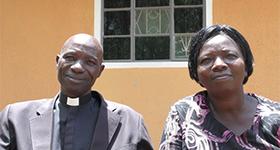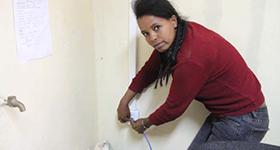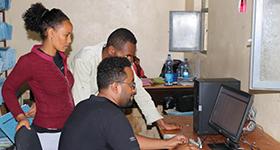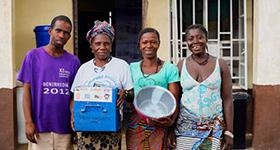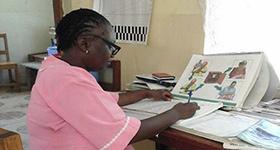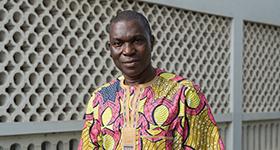Background
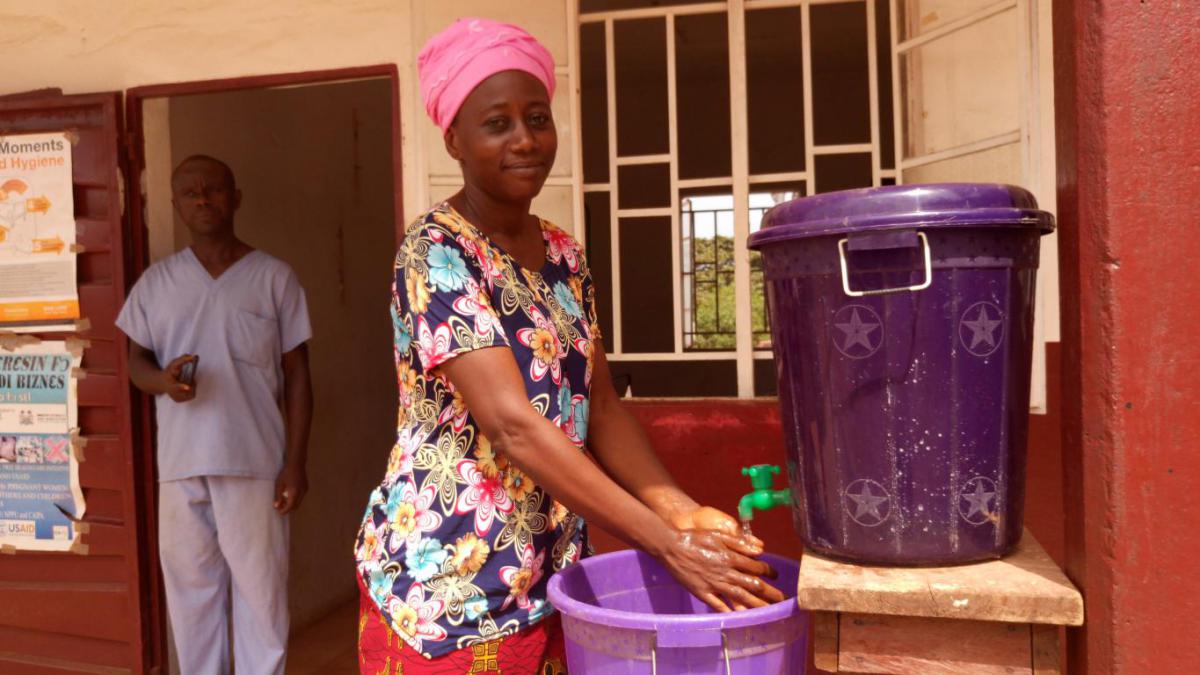
Zainab Fonafah washes her hands in front of the health facility.
Water availability at Juba Mi Room Community Health Center is “not good, not bad,” says Zainab Fofanah. Zainab is Juba’s community mammy queen, an elected position responsible for advocating for community health issues. Juba Mi Room is one of the health facilities in Sierra Leone’s Western Area Urban district that receives support from the United States Agency for International Development-funded Advancing Partners & Communities project, implemented by JSI Research & Training Institute Inc. (JSI), in collaboration with Action Contre la Faim (ACF).
Advancing Partners & Communities’ initial plan was to construct a borehole for the health facility, but after careful examination through a number of geophysical terrain surveys, it was clear that there was no possibility of finding water in the area. At the same time, as part of its community engagement approach, Advancing Partners & Communities started providing training and support to the facility management committee (FMC), as a way to improve the communication and linkages between the facility and surrounding community.
Intervention
The project worked with the FMC to identify alternative strategies to improve water availability. Zainab, who is also the head of the FMC, engaged in a series of advocacy and community meetings with the military, which has barracks in the community. By November 2016, she convinced the military to construct a communal water tap fed by the Guma Valley Water Company (GVWC) supply. Although the tap only flows three times a week, the community is happy to have regular access to water. Zainab too, is pleased.“As mammy queen, my role is to serve the people and it gives me pleasure to do so.”
Outcomes
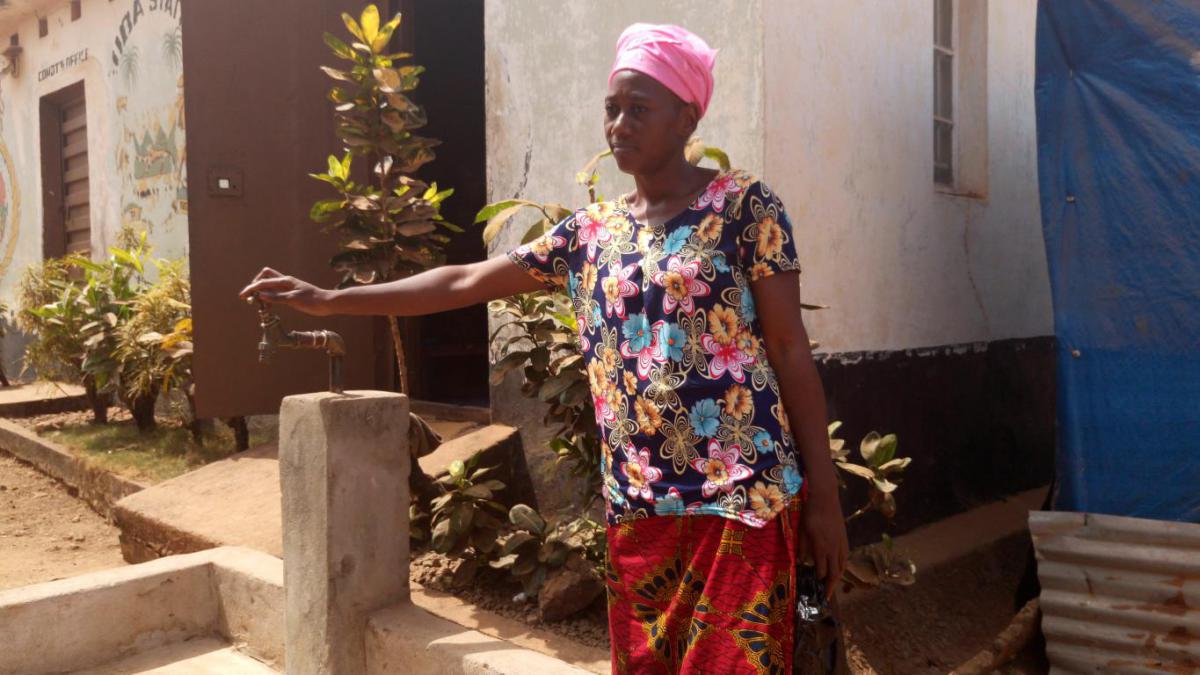
Zainab and one of the taps in her community.
Health care workers at the facility now get water from a small drum that the FMC provided. Zainab notes that the increased availability of water has led to a decrease in diarrhea episodes.“Now, the diarrhea situation at the health center has improved because people in our community can drink safe water and wash their hands regularly.”
Zainab did not stop there, however. Since the taps are only open three times a week and are relatively far away from the health facility, Zainab and the FMC, with project support, identified the possibility of connecting the facility to the large barracks’ reservoir supplied by GVWC.
The project provided two water tanks with a total volume of 15,000 liters, a small pump, and a piping system to ensure the health facility has ongoing direct water supply. This system will soon ensure water flows inside the facility and will guarantee the health post has access to running water for general consultation and deliveries 24 hours a day.
None of this could have been realized without Zainab’s leadership. This one-woman force mobilized resources to bring water to her community and help improve health services.

